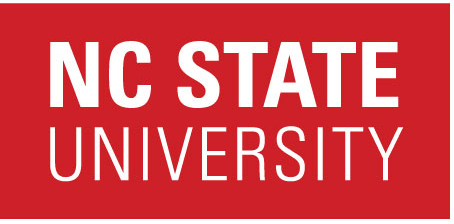успешных поступлений
университетов и бизнес-школ мира
странах работают после учебы наши выпускники
успешных поступлений
университетов и бизнес-школ мира
странах работают после учебы наши выпускники
NC State's Main Campus has three sub-campuses: North Campus, Central Campus, and South Campus. North Campus is the oldest part of NC State and is home to most academic departments and a few residence halls. Central Campus is mainly residence halls, cafeterias, gymnasiums and student support facilities. Finally, Greek Court, the McKimmon Conference and Training Center and student park-and-ride areas are found on South Campus.
North and Central Campuses are separated by the North Carolina Railroad. Pedestrian tunnels allow students to commute between campuses. Central and South Campuses are separated by Western Boulevard, a major downtown artery. University Housing divides Main Campus into West, Central and East Campus for residence hall purposes.
With more than 600 organizations on campus students can experience it all: running a daily newspaper, deejaying for one of the nation’s top college radio stations, building robots, exploring comedy or dance and much, much more. Whatever their area of interest, be it political, professional, social, ethnic or academic, there’s a student organization for them.
The hub for student activities is the new Talley Student Union, a state-of-the-art foundation for student life. Combined with the tradition of our hallowed places, NC State is a place where community comes alive and students truly think and do.
Student life at North Carolina State University includes opportunities in a diverse range of activities and organizations. These include multicultural, arts, sports and recreation, religious, service, academic and professional, political and social action groups, Greek organizations, and special interests groups such as the Clogging Team, the Film Society, the Judo Club, the Equestrian Club and the Black Finesse Modeling Troupe.
NC State offers students housing options that range from traditional residence hall living and campus-based village communities to on- and off-campus apartment complexes owned and operated by the university for upperclassmen and graduate student residents.
The residence halls are living-and-learning centers equipped with state-of-the-art technology. In Living and Learning Villages — residence hall communities devoted to students who share similar academic, personal or lifestyle interests — students live and learn with a ready-made group of peers who share their values, priorities and interests.
Thirty-five percent of full-time undergraduate students live on campus in one of nineteen residence halls. Most residence halls provide events that acclimate incoming students to the college experience.
Many residence halls host events though alcohol policies are strictly enforced.
92% of students are employed, freelancing or continuing their education within three months after graduation. Among the companies that employ NCSU students are companies such as Red Hat, Cisco Systems, USAA, Caterpillar, Patheon and others.
